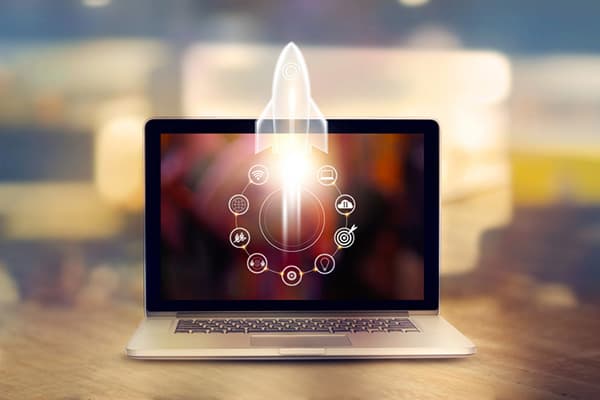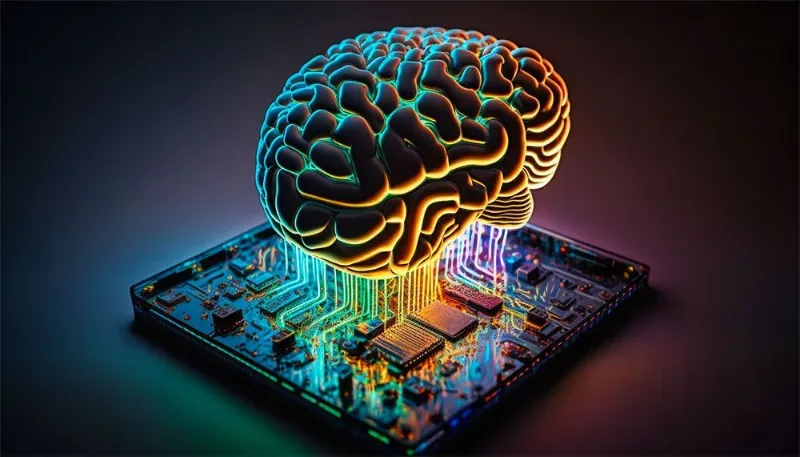Gaming is a great way to unwind after a long day, but it can be frustrating when your computer runs slow and can’t keep up with your games. If you’re experiencing lag, stuttering, or slow load times when gaming, it’s time to speed up your computer. In this article, we’ll explore the top tips and tricks to speed up a slow computer for gaming, so you can enjoy a seamless gaming experience.

- Upgrade Your Hardware One of the most effective ways to speed up your computer for gaming is to upgrade your hardware. If your computer is outdated or doesn’t meet the minimum system requirements for your games, upgrading your hardware can make a significant difference.
Consider upgrading your graphics card, RAM, or CPU to improve your computer’s performance. It’s important to research the specific hardware upgrades that are compatible with your computer and games to ensure you get the best results.
- Remove Unnecessary Programs and Files Another common cause of a slow computer is having too many unnecessary programs and files. These can take up valuable disk space and slow down your computer’s performance.
Take the time to go through your computer and remove any programs or files that you no longer need. This will free up space on your hard drive and improve your computer’s speed.
- Disable Unnecessary Startup Programs Many programs are set to run automatically when you start your computer, which can slow down your computer’s boot time and overall performance.
To speed up your computer for gaming, disable any unnecessary startup programs. This will free up your computer’s resources and improve its performance.
- Clean Up Your Hard Drive A cluttered hard drive can significantly slow down your computer’s performance, especially when gaming. To speed up your computer, clean up your hard drive by deleting unnecessary files, programs, and games.
Consider using a disk cleanup tool to automate the process and free up space on your hard drive. This will improve your computer’s speed and make it run smoother when gaming.
- Update Your Drivers and Operating System Outdated drivers and operating systems can also cause your computer to run slow and cause performance issues when gaming. It’s important to keep your drivers and operating system up to date to ensure your computer is running at its best.
Check for updates regularly and install any available updates to improve your computer’s performance and ensure compatibility with the latest games.
- Adjust Your Graphics Settings The graphics settings in your games can significantly impact your computer’s performance. If your computer is running slow when gaming, consider adjusting your graphics settings to reduce the strain on your computer’s hardware.
Lowering the graphics quality, reducing the resolution, and disabling any unnecessary visual effects can improve your computer’s performance and make your games run smoother.
- Defragment Your Hard Drive Over time, your hard drive can become fragmented, which can slow down your computer’s performance when gaming. Defragmenting your hard drive can improve your computer’s speed by rearranging files and making them easier to access.
Consider using a disk defragmenter tool to automate the process and improve your computer’s performance.
- Close Unnecessary Programs and Browser Tabs Running too many programs or browser tabs can also slow down your computer’s performance when gaming. Close any unnecessary programs or tabs to free up your computer’s resources and improve its speed.
- Use Game Booster Software Game booster software is specifically designed to optimize your computer’s performance when gaming. These tools can free up system resources, optimize graphics settings, and reduce lag to ensure a smooth gaming experience.
Consider using a game booster tool to improve your computer’s performance when gaming and maximize your gaming experience.
Conclusion
In conclusion, a slow computer can be frustrating when gaming, but there are many ways to speed up
your computer and improve your gaming experience. From upgrading your hardware to adjusting your graphics settings, cleaning up your hard drive, and using game booster software, there are many ways to optimize your computer’s performance and speed it up for gaming.
It’s important to remember that some of these solutions may require a financial investment, such as upgrading your hardware or purchasing game booster software. However, the investment can be worth it in the long run, as it will significantly improve your gaming experience and make your computer run smoother overall.
Additionally, it’s important to regularly maintain your computer to ensure it runs smoothly and doesn’t become cluttered with unnecessary programs and files. By regularly cleaning up your hard drive, updating your drivers and operating system, and adjusting your graphics settings, you can keep your computer running at its best and avoid any performance issues when gaming.
Overall, speeding up a slow computer for gaming requires a combination of hardware upgrades, software optimization, and regular maintenance. By following the tips and tricks outlined in this guide, you can optimize your computer’s performance and enjoy a seamless gaming experience.

